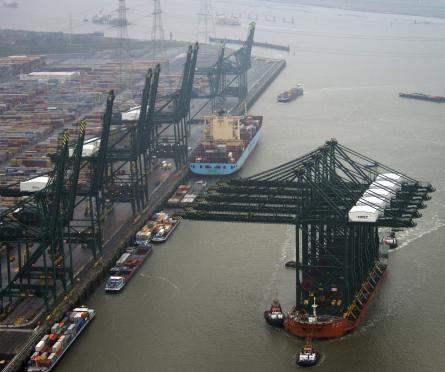Draft limitation, land availability, cost differences, liner and/ or inland connectivity, regulations are possible drivers for port migration and relocation. PortEconomics members Theo Notteboom and Jean-Paul Rodrigue along with Peter Hall (Simon Fraser University, Vancouver, Canada) discussed the spatial, economic, network, environmental and governance drivers and consequences from the relocation and migration of container terminals.
The discussion took place during the 17th PPRN meeting, held in Athens, Greece at the eve of IAME2019 Annual Conference, on June 25th and the presentation can be downloaded here.
A special issue in a leading academic journal will follow with the call for papers to commence soon.












